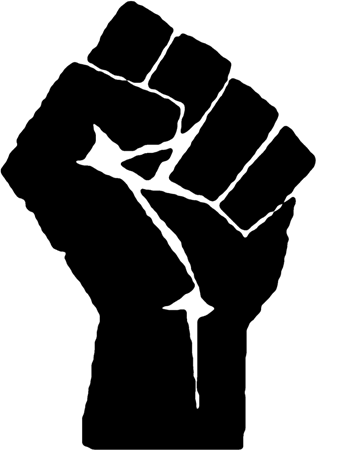“They Say Pushout, We Say Pushback!” A Transformational Resistance Framework for Youth Development and Healing Justice Outcomes
Over the past decade, there has been a resurgence of research that has viewed education through a spatial and geographical lens (McCreary et al., 2013; Holloway et al., 2011; Thiem, 2009; Butler and Hamnett, 2007). With certain exceptions however (Symes, 2007; Gulson and Parkes, 2009; Hunter, 2015; Morrin, 2015; Gamsu, 2016), relatively little of this recent work has taken an approach which weaves together history and geography to ‘place education in a trinity of contexts: of time, of place and of society’ (Marsden 1987: 2). Moreover, much work in the new geographies of education has taken as its starting point the unequal spatial dynamics of neoliberalism without always tracing the longer lineages of social and spatial change which underpin current educational inequalities. In this session as part of a broader call for a critical geography of education (Nguyen, Cohen and Huff, 2017), we wish to explore how examining the spatial analysis of education over time can extend our analysis of the uneven geographies of educational power.
Contributors may wish to examine but should not feel limited to the following themes:
Organizers: Sol Gamsu, Francisca Corbalan, and Kirsty Morrin In our session, we would like to explore the social, spatial and political dynamics of school segregation in different urban contexts. Education systems in many cities have been characterized by a progressive segmentation of the student population, which not only reflects the existing social and spatial differentiation in the urban population, but also inserts new forms of social segregation. On the one hand new forms of separation, based on the ethnic differentiation of the population, have been emerging. On the other, social polarization has increased the distance and cultural segmentation between population groups with different social backgrounds and differentiated access to cultural and material assets. If social and spatial (residential) divisions have been exacerbated in many cities due to the changes of the last decades, the segmentation within the education system and the segregation in the residential sphere have become very crucial as this may hinder intergenerational upward social mobility and influence the general level of social cohesion in contemporary cities.
The background hypothesis of this session is that school segregation not only reflects existing locally-based ethnic and socio-economic residential divisions, but it may also impact on new specific forms of social and spatial differentiation, worsening the social inclusion of the most vulnerable urban social groups and increasing barriers among social groups. Based on these assumptions, we propose a session focused on the following questions:
Organizers: Isabel Ramos Lobato, Venla Bernelius, Sako Musterd & Rikke Skovgaard Nielsen Our age of resurgent white supremacy requires critical pedagogies of race and racialization. As educators, we are positioned to shape the horizon of the politically possible through engaging students. Yet teaching race is tricky. Miseducation in US K-12 classrooms is commonplace, and some students arrive without basic historical knowledge of racial capitalism, forged in the crucible of slavery and theft of Native lands, and persistent in new forms today. The complexity of racialization requires moving beyond the common binary of black and white to include the diverse experiences of other racialized groups, while still recognizing anti-blackness and settler colonialism as core dynamics of US exceptionalism. There are also pragmatic challenges. Students arrive with vastly different lived experiences of race and racialization. White students, or others with racial privilege, may resist learning about whiteness, or other means of turning toward practices of power and privilege. Educators can expect microagressions in the classroom, even as institutional support to gain competency in navigating racially diverse classrooms is often inadequate. Instructors of color and women may experience more push back when teaching critical perspectives on race than white educators and men.
Despite the challenges, teaching race provides a vital frame for students to see the linkages between critical theoretical frameworks--adequate to the complexity of the concrete--and effective, justice oriented action, that is, to engage with praxis. By rooting race and racialization in specific spaces, with deep histories, geography offers an important set of theoretical resources to help students grasp the processes, stakes and political possibilities of our current moment. Indeed, teaching about racialized space--borders, prisons, sacrifice zones, immigrant detention camps, the plantation, suburban enclaves, ghettos, and slums, to name a few—provides important resources to ground theory and engage students. This panel will discuss coping devices, knowledge production politics, pedagogical practices, and possible forms of academic resistance. We will also discuss real-world instances in which academic freedom was deprived, and how these instances affect teaching race in geography. Organizers: Brian Jordan Jefferson and Jennifer Tucker |
Archives
January 2022
Categories |

 RSS Feed
RSS Feed